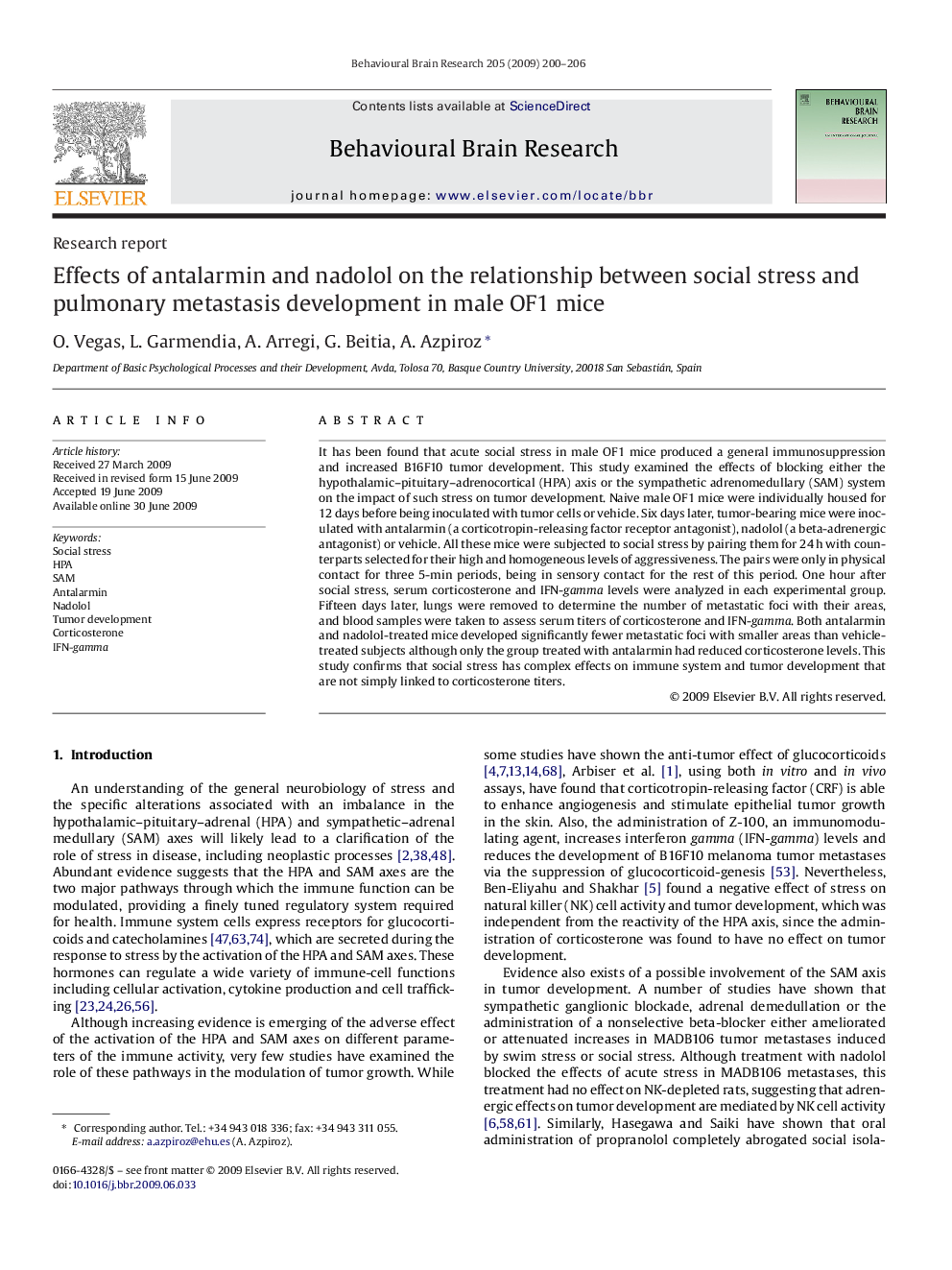| Article ID | Journal | Published Year | Pages | File Type |
|---|---|---|---|---|
| 4314526 | Behavioural Brain Research | 2009 | 7 Pages |
It has been found that acute social stress in male OF1 mice produced a general immunosuppression and increased B16F10 tumor development. This study examined the effects of blocking either the hypothalamic–pituitary–adrenocortical (HPA) axis or the sympathetic adrenomedullary (SAM) system on the impact of such stress on tumor development. Naive male OF1 mice were individually housed for 12 days before being inoculated with tumor cells or vehicle. Six days later, tumor-bearing mice were inoculated with antalarmin (a corticotropin-releasing factor receptor antagonist), nadolol (a beta-adrenergic antagonist) or vehicle. All these mice were subjected to social stress by pairing them for 24 h with counterparts selected for their high and homogeneous levels of aggressiveness. The pairs were only in physical contact for three 5-min periods, being in sensory contact for the rest of this period. One hour after social stress, serum corticosterone and IFN-gamma levels were analyzed in each experimental group. Fifteen days later, lungs were removed to determine the number of metastatic foci with their areas, and blood samples were taken to assess serum titers of corticosterone and IFN-gamma. Both antalarmin and nadolol-treated mice developed significantly fewer metastatic foci with smaller areas than vehicle-treated subjects although only the group treated with antalarmin had reduced corticosterone levels. This study confirms that social stress has complex effects on immune system and tumor development that are not simply linked to corticosterone titers.
